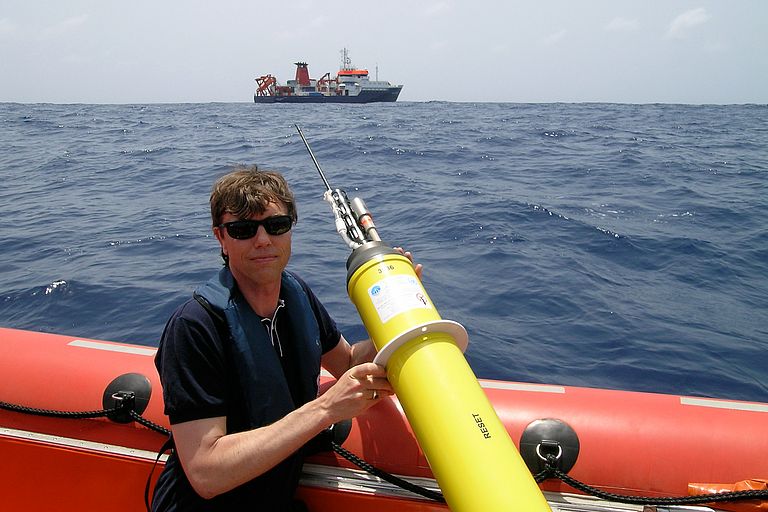Climate Change: A Bumpy Road
Professor Martin Visbeck calls for enhanced ocean observations in “Nature Geoscience”
27 February 2014/Kiel. Let there be no doubt: Earth is experiencing a phase of significant changes. This is due to the increasing concentration of greenhouse gases in the atmosphere and the resulting increase in global average temperatures. While there is a general consensus in the scientific community about these facts, any cold winter like that of 2011/12 will generate persistent doubts in the public perception that there is a general increase in temperatures. And the current leveling-off of global temperatures at a fairly high level feeds the outside questioning of climate change impacts. Martin Visbeck, Professor of Physical Oceanography at GEOMAR Helmholtz Centre for Ocean Research Kiel and spokesman of the Cluster of Excellence "The Future Ocean", sees several reasons for this misconception, as detailed in the current edition of the internationally renowned journal "Nature Geoscience": “For many years, science has failed to show that a general rise in temperature is not a linear trend that leads to slightly higher temperatures year after year. This simple scenario does not account for the significant contributions of man-made developments and the multitude of natural variations in the oceans and the atmosphere," he says. Climate change takes a very bumpy road, even if the overall trend is clearly upward, so Professor Visbeck in his commentary.
At the same time scientists must admit that they have not yet fully understood the fluctuations responsible for the development on decadal timescales. "Here, climate variability on timescales of 10 to 30 years is especially important for our own generation. They are far too long to simply take a “wait and see” attitude, but also too short for a perfect adaptation,” says Professor Visbeck.
Against this background, the oceanographer welcomes the fact that research in decadal climate variability is gaining more prominence. Visbeck referred to the latest report of the UN IPCC as an example of the increased attention on medium-term changes in climate. The report dedicates an entire chapter to this topic. However, the report also concludes that large parts of medium-term climate change are not currently predictable.
Since the ocean plays a crucial role in these processes and absorbs more than 90 percent of the additional heat that warms the earth as the result of the changed radiation balance of the atmosphere, Professor Visbeck calls for more comprehensive, full coverage and global ocean observations. "A fully implemented climate-observing system, the worldwide unrestricted sharing of data, and a near-realtime assessment of the state of the climate system are needed to advance climate research. Only then will we be able to provide society with an improved and more reliable assessment of climate changes," Visbeck writes in his commentary.

![The image shows the changes of the Ocean Heat Content (OHC) up to depth of 700 m based on different analysis. Since the start of the Argo program in 2000 the much more data is available. © IPCC [3] The image shows the changes of the Ocean Heat Content (OHC) up to depth of 700 m based on different analysis. Since the start of the Argo program in 2000 the much more data is available. © IPCC [3]](/fileadmin/_processed_/c/9/csm_OceanHeatContent_4aa63dd06d.jpg)


